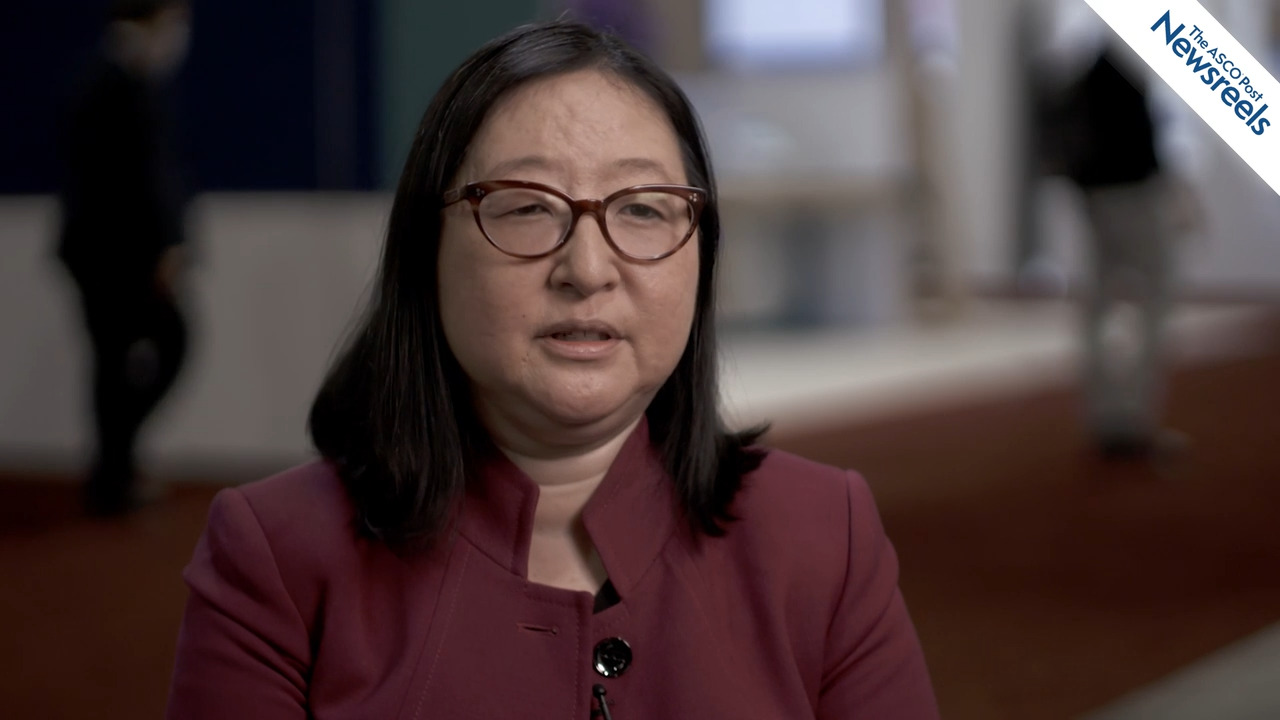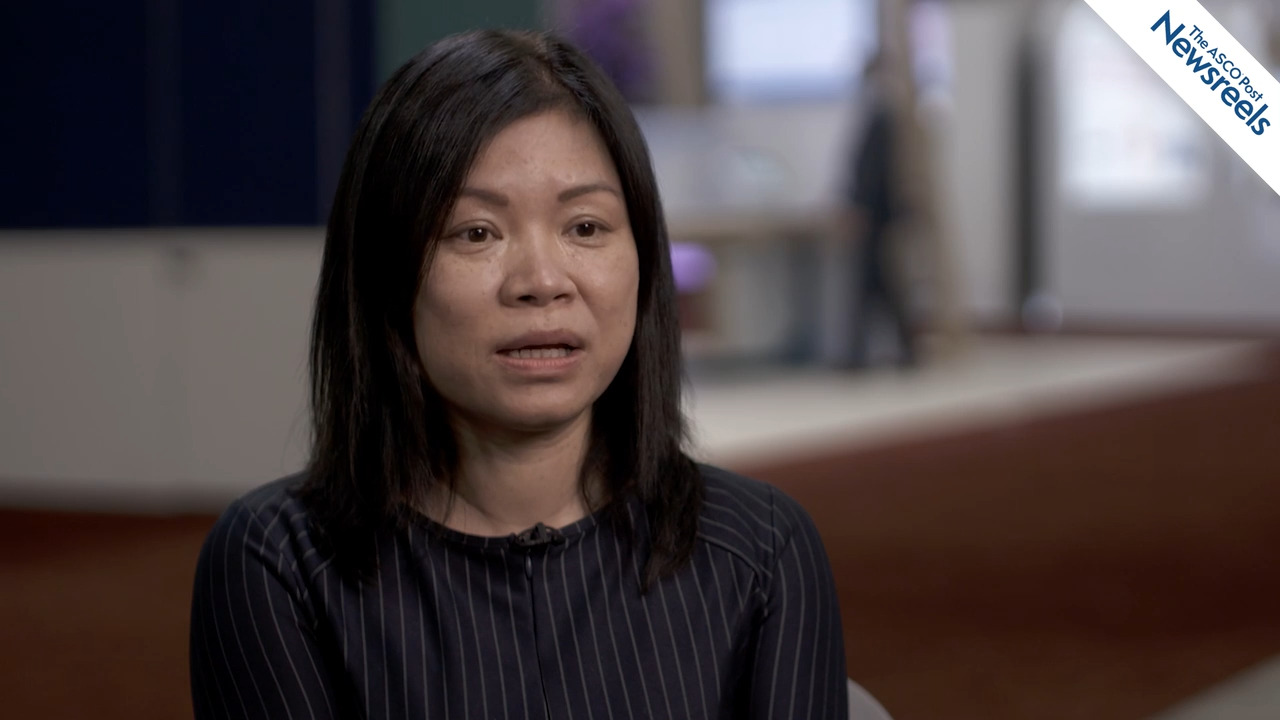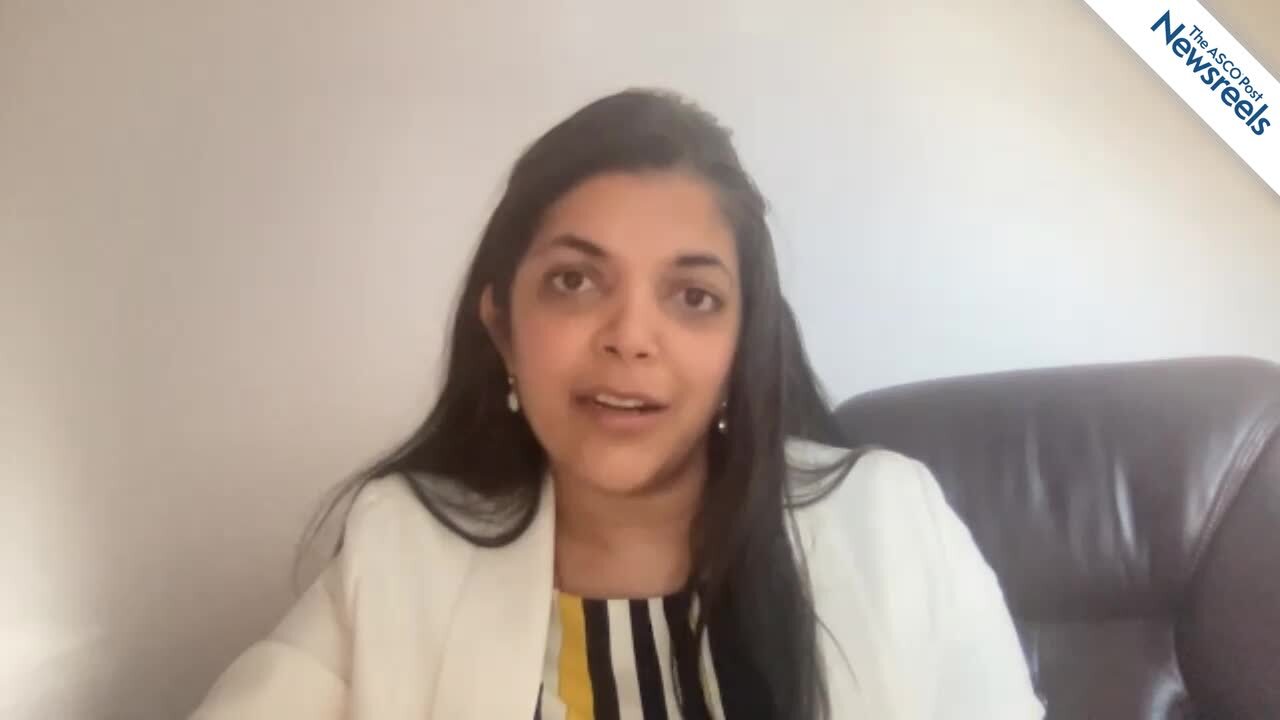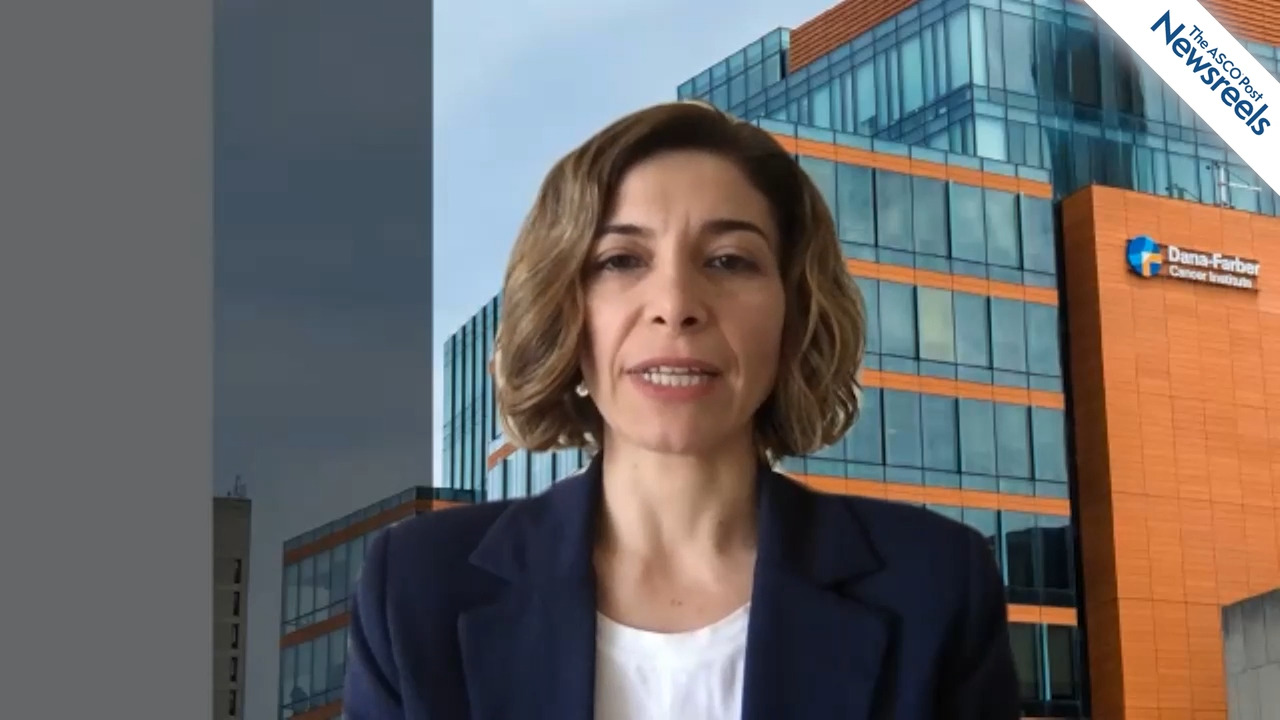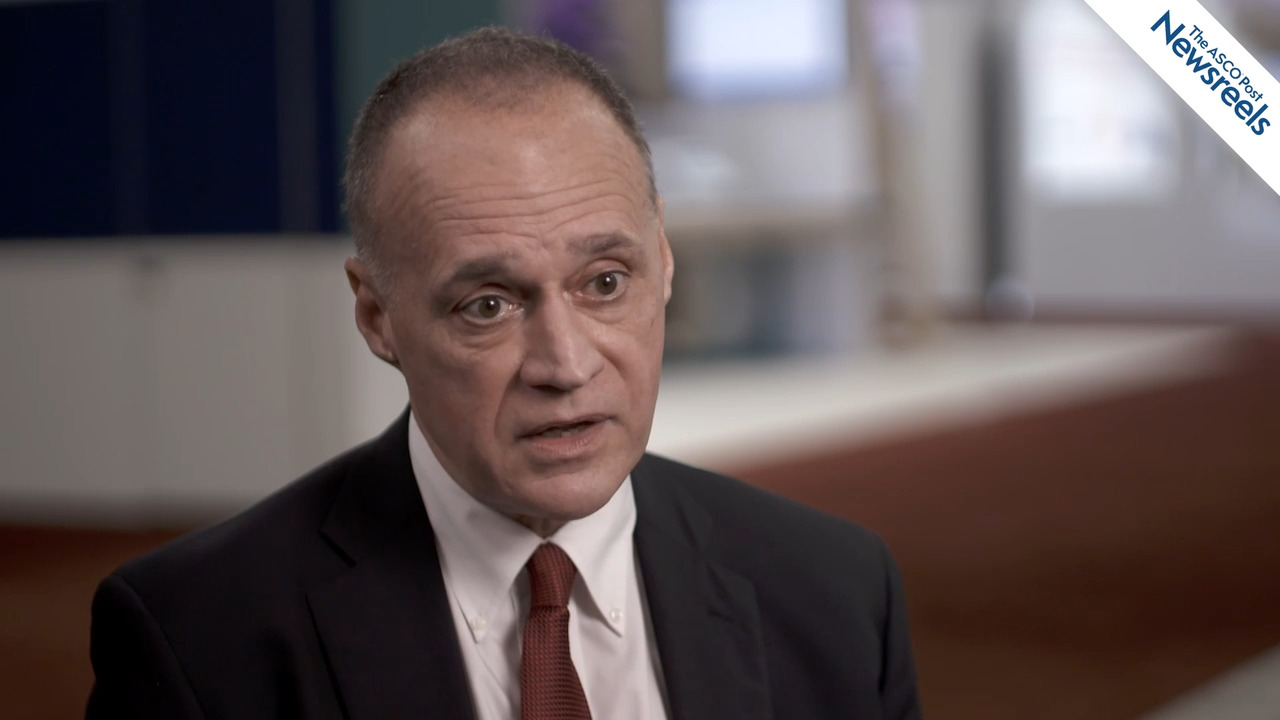Leslie S. Kean, MD, PhD, on Bone Marrow Transplantation: Using Abatacept to Prevent Graft-vs-Host Disease
2021 ASH Annual Meeting & Exposition
Leslie S. Kean, MD, PhD, of Dana-Farber/Boston Children's Cancer and Blood Disorders Center, discusses findings from her analysis of the International Blood and Marrow Transplant Research Database, which led to the recent FDA approval of abatacept for the prevention of acute graft-vs-host disease (GVHD) in adult and pediatric patients. The data suggest improved overall survival with the immunosuppressant abatacept in combination with a calcineurin inhibitor and methotrexate following 7/8 HLA–matched unrelated allogeneic hematopoietic stem cell transplantation (Abstract 3912).
The ASCO Post Staff
Eunice S. Wang, MD, of Roswell Park Comprehensive Cancer Center, discusses phase III results showing that gilteritinib and azacitidine led to significantly higher composite complete response rates in patients with newly diagnosed FLT3-mutant acute myeloid leukemia who are ineligible for intensive induction chemotherapy. Overall survival was similar to that of azacitidine alone (Abstract 700).
The ASCO Post Staff
L. Elizabeth Budde, MD, PhD, of City of Hope, discusses phase I/II findings that showed mosunetuzumab monotherapy induces deep and durable remissions in patients with relapsed or refractory follicular lymphoma who have received two or more prior lines of treatment, including those with double-refractory disease. Because follicular lymphoma is associated with frequent relapses and decreasing progression-free intervals with successive lines of conventional therapy, these data are encouraging (Abstract 127).
The ASCO Post Staff
Manali Kamdar, MD, of the University of Colorado Cancer Center, discusses phase III results from the TRANSFORM study, which suggest that lisocabtagene maraleucel, a CD19-directed CAR T-cell therapy, improved outcomes with a favorable safety profile and may be a potential new standard of care for second-line treatment of patients with relapsed or refractory large B-cell lymphoma (Abstract 91).
The ASCO Post Staff
Anil Aktas-Samur, PhD, of Dana-Farber Cancer Institute, discusses study findings on the genomic characterization of non-progressor smoldering multiple myeloma, results that may provide a molecular definition of the disease as well as its risk-driving features. Combining this low-risk model with current high-risk models may possibly improve clinical trials for patients with this early precursor to myeloma (Abstract 545).
The ASCO Post Staff
Michael R. Bishop, MD, of the University of Chicago, discusses insights from findings of the phase III BELINDA study, which may inform the design of future CAR T-cell trials, as well as the use of second-line tisagenlecleucel therapy in patients with relapsed or refractory aggressive B-cell non-Hodgkin lymphoma (Abstract LBA-6).
